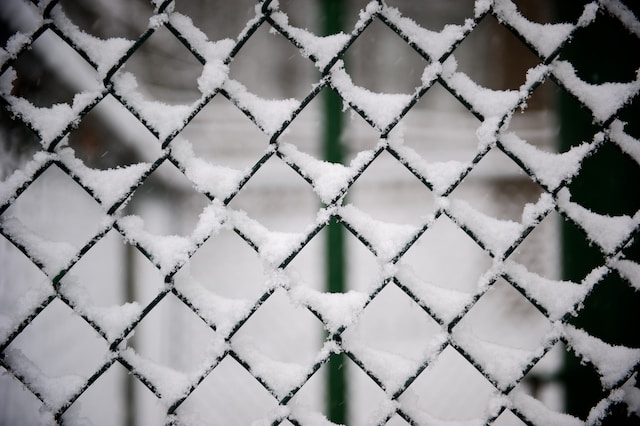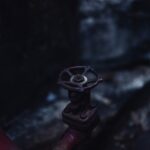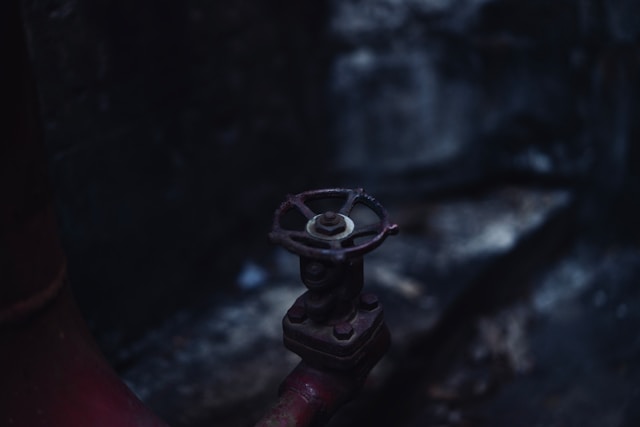Whether you’re a commercial business or a homeowner looking for a durable and affordable fence, chain link can be an attractive choice. But it would help if you considered a few things before choosing your chain link fence fabric.
The three most important considerations are gauge, mesh size, and coating. Other components are also to consider, like the framework, gates, and fittings.

Gauge
The gauge, or thickness of the wire in chain link fence fabric, is an important consideration. It tells you how much steel was used to create the woven metal fence fabric. The lower the number, the thicker the wire. For residential use, a gauge of 9 or 11 is ideal. It will keep kids and pets safe while preventing unwanted visitors from entering your property.
If your home features a tennis or basketball court, you want to use a heavier gauge like 12 or 13 for increased strength. This will prevent balls from going through the fence.
You can also increase privacy by adding slats to your fence. These slats are woven between the wire and come in various colors. They may not offer 100% privacy, but they will reduce visibility. They are also great for those looking to add greenery to their property. These slats can also be coated in an aluminized coating for better corrosion resistance.
Mesh
Chain link fences may not offer the same curb appeal and privacy as other fencing options, but they’re one of the most affordable, durable, secure, and easy-to-maintain fencing types. They’re especially well-suited for residential and commercial properties where they can help keep pets, children, and adults safe.
A chain link fence’s gauge and mesh size are crucial to its strength and security. The higher the wire gauge, the thicker and more robust it is. A lower gauge indicates a thinner and weaker fence. Evaluate your property’s needs and select a height and mesh size that aligns with your goals.
Chain link fences have the option to be buried in the ground, which creates an effective underground barrier and keeps smaller burrowing animals away. However, planting the wall will increase the labor cost of installation. Talk to your fence contractor at installation time if you want to add this feature.
Coating
Choosing the suitable chain link fence fabric Pennsauken NJ, involves three criteria: gauge of wire, mesh size, and protective coating type. The right combination of these factors will result in a well-performing wall that meets the needs of your property.
The ‘gauge’ number refers to the amount of steel in each diamond-shaped metal wire. A lower number equals thicker, stronger wire. While a one-to-two gauge difference doesn’t seem like much, it makes a significant difference in strength.
In addition to rust protection, the zinc coating on chain link fences acts as a cathodic barrier to protect the base steel from corrosion even when the fabric’s surface is scratched. This sacrificial coating continues to work for the life of the fence.
Aside from the galvanized coating, you can find powder-coated and vinyl-coated chain-link fencing components to add color and protection against rust and corrosion. These options can enhance landscaping and blend naturally with the property’s trees, shrubs, and bushes.
Installation
As with all types of fencing, a chain link fence needs to be correctly installed and maintained to remain functional and appealing. To do so, it’s best to look for a provider that follows all guidelines and legal requirements in your area.
The most crucial consideration in choosing a chain link fence is the type of security and visibility you need on your property. If privacy is your primary goal, opt for a smaller diamond size and higher wire gauges, which will cost more and provide greater security.
Other components that affect the quality of a chain link fence include framework, fittings, and gates. The steel tubing framework creates a frame for the mesh fabric. Choosing a high-quality gauge that will hold up over time is essential. The fittings, which attach the framework to the mesh fabric, should also be high-quality and well-protected. Finally, the gates connect the fence to your property’s entry and exit points.

 Revamping Your Bathroom Space: The Journey to Selecting the Perfect Cabinets
Revamping Your Bathroom Space: The Journey to Selecting the Perfect Cabinets  Strengthening Your Team: The Role of Background Checks in Modern Hiring Practices
Strengthening Your Team: The Role of Background Checks in Modern Hiring Practices  Keeping Your Hearth in Top Shape: The Value of Routine Fireplace Repair
Keeping Your Hearth in Top Shape: The Value of Routine Fireplace Repair  Septic Systems: Maintenance Tips for Homeowners
Septic Systems: Maintenance Tips for Homeowners 


